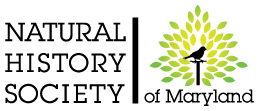Throughout history, humans have relied on technology in order to survive. Computers, cell phones, internet..and STONE TOOLS?! Come celebrate Maryland Archaeology Month with us and learn about he very first human technological innovations, STONE TOOLS! Curious why stone tools are considered a technology? Come find out!
Join us for a fun afternoon of hands-on primitive skills technology: using only natural materials found in the wild to produce hand-made essential elements of survival. Manipulating items found in nature through traditional skills provides an understanding of the origin of modern technologies while also deepens your connection to the earth.
We are so excited to be hosting primitive technology expert, Kirk Dreier. He will be demonstrating flint knapping (the art of making stone tools) with techniques of pressure flaking, bi polar reduction and percussion flaking. Also on hand will be other tools that can be touched and examined, including stone axes (celts), arrows, spears and a Cherokee style blowgun…and more!
This Nature Connections is FREE and you are welcome to stop by anytime between 1pm and 3pm!
Who’s Kirk?
Park Naturalist and Director of Baltimore County Department of Recreation and Parks Cromwell Valley Park/Willow Grove Nature Center, F. Kirk Dreier has been practicing primitive technology for the past 31 years. During 27 of those years, he inherited the Primitive Technology Weekend, which has been held every year at the Oregon Ridge Nature Center until 2015 and is now held at the Willow Grove Nature Center in Cromwell Valley Park. The Primitive Technology Weekend has featured many of the experts in this field; people such as Dr. Errett Callahan, Jack Cresson, and Scott Silsby, Dr Bill Schindler of Washinton College, and Dr. Dennis Stanford of the Smithsonian have collaborated with Kirk for years.
***
Kirk, like most of the other people leading NHSM, is a volunteer, so program and member fees will go directly to support the programs, the nature collections, and the building that make this kind of nature education possible. Please consider donating or becoming a member of the Natural History Society of Maryland and visit www.marylandnature.org for more information. Thank you for your support!
